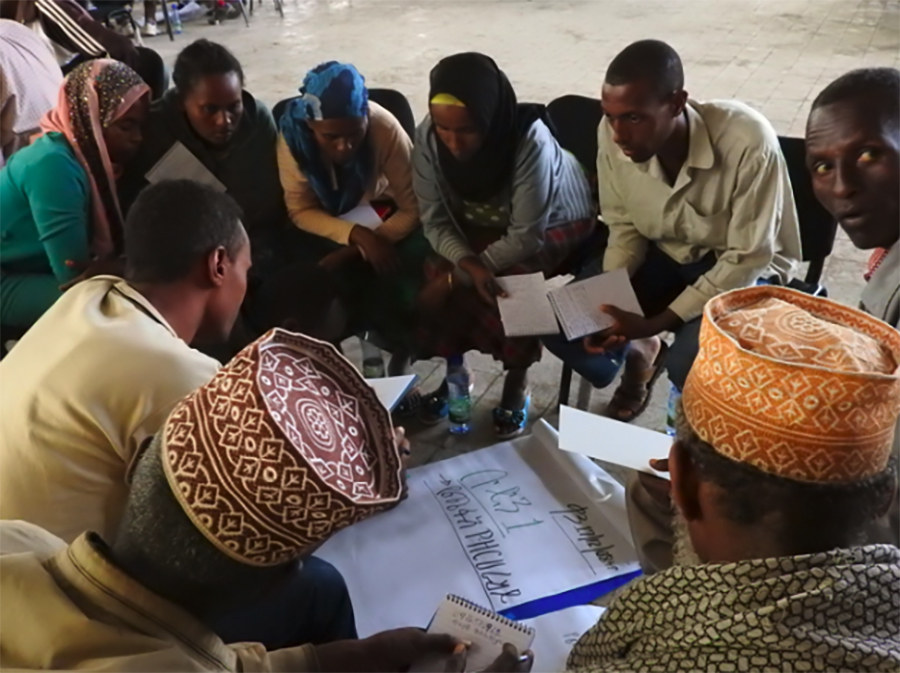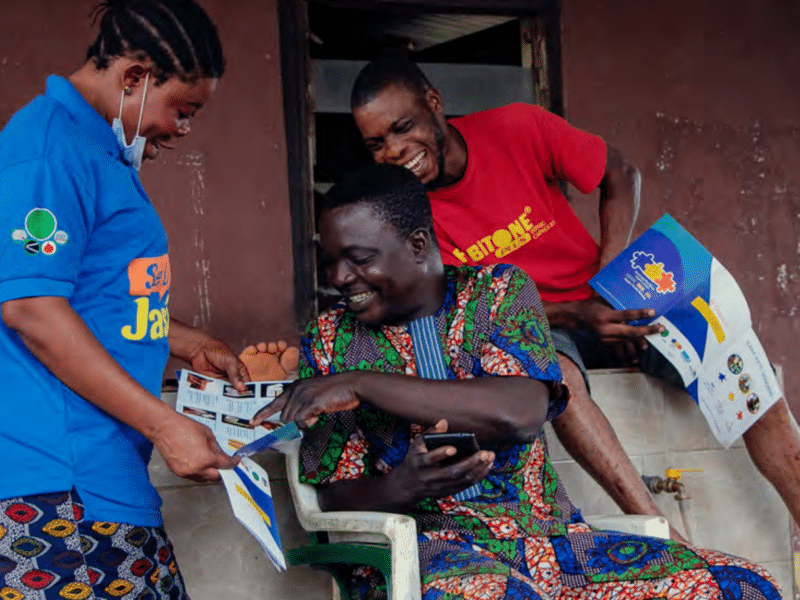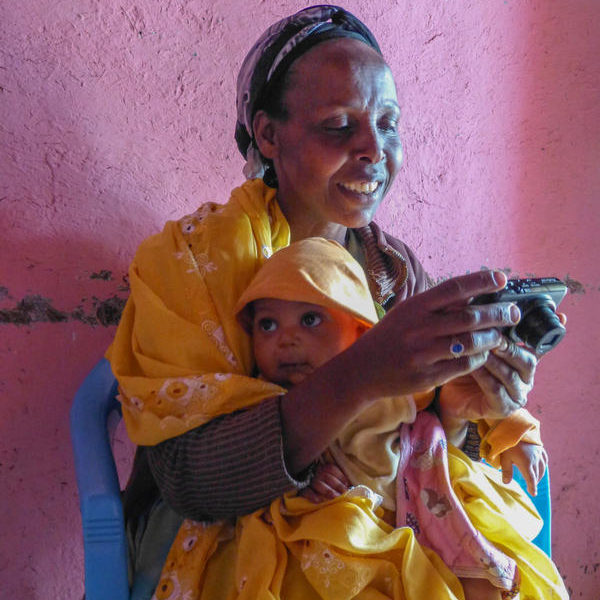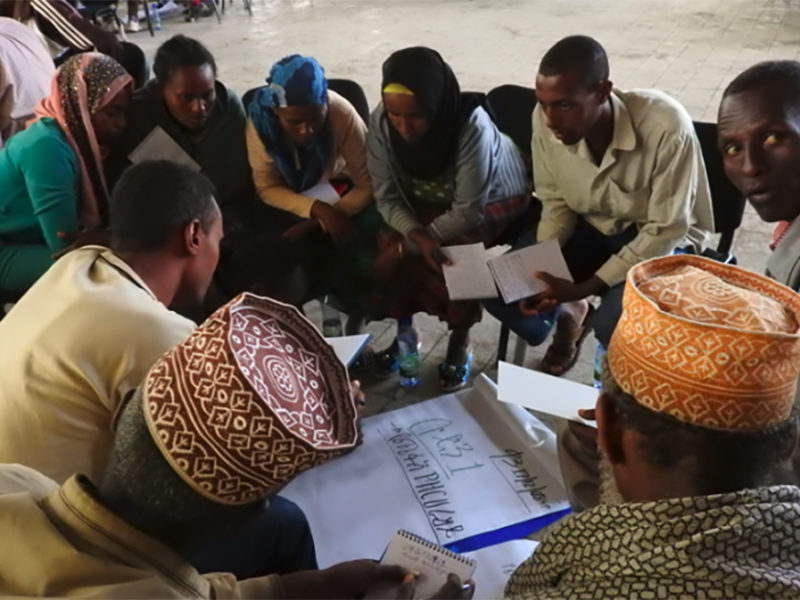Arriving at the meeting hall, Kebebush Bekele, a health extension worker from the Badewacho district in Ethiopia’s Southern Nations, Nationalities, and Peoples’ Region, was excited to see “social mobilization” activities – or activities that use dialogue to bring together local stakeholders to raise awareness of and demand for a particular health objective – resume in her subdistrict.
According to Ms. Bekele, social mobilization activities in her local area had previously begun a long time ago, but stopped owing mostly to the lack of follow-up by previous programs. As she entered the meeting hall, she was not sure what to anticipate.
In recognition of just how complex human behaviors can be, the CCP-led, USAID-funded Communication for Health project has been approaching social and behavior change communication using social mobilization as a way to encourage sustainable community ownership for local health problems. Ms. Bekele and the other health extension workers are key participants in the social mobilization kickoffs.
The kickoffs begin with the community setting vision in their districts, analyzing their current situation, identifying and prioritizing health problems, conducting root cause analysis for each health problem and developing objectives, strategies and action plan for the targeted health problems. During Ms. Bekele’s kickoff meeting, maternal death was identified as a priority health issue. Cultural barriers, lack of male involvement during pregnancy and delivery and lack of awareness about dangers of home delivery were a few of the root causes identified. Other kick-off gatherings have identified diarrhea, malnutrition, malaria, tuberculosis, pneumonia, HIV/AIDS and harmful traditional practices, like female genital mutilation, as priority health problems.
Because the Communication for Health project believes that focusing on individual behavior alone cannot bring change, the project uses a socio-ecological model to achieve behavior change. Integrated behavior change at all levels requires a wider range of social mobilization interventions from community level (households, community social networks, religious institutions) to service providers and policy makers.
The intended outcome of the kickoff meeting that Ms. Bekele attended, and others like it, is the development of an action plan that identifies specific next steps and aids social mobilizers as they conduct community conference, reach consensus, assign roles and responsibilities with each community leaders and dive into action. Based on the action plan and assigned roles and responsibilities, social mobilizers will monitor the status and progress each month.
On the last day of the kick-off, Ms. Bekele, who had previously been skeptical, stated, “This social mobilization kick-off was different from ones that I had attended previously. The depth of the process we went through was very insightful, from setting a shared vision, to identifying and prioritizing our health problems and their root causes, to discussing together how to solve them.”
Ato Ermias, a district head, echoed Ms. Bekele’s sentiment when asked about what made Communication for Health’s social mobilization kick-off different from ones he had previously attended.
“The steps we followed from shared vision to identifying problems and coming up with a plan to solve them are what made this unique.” Furthermore, Ato Ermias expressed his contentment with participants who attended the kick-off, stating, “I believe that having both [district] leaders and health extension workers attend the kick-off and go through this process together will help fill the communication gap between them. The problems that exist in the community can only be solved by working together.”
Post-kick-off activities will aim to engage schools and traditional/religious leaders in different communities through a social mobilization kit that health extension workers can utilize. So far, 87 social mobilization kick-off gatherings have occurred throughout Ethiopia.
The Communication for Health project is designed to optimize the power of health communication to save lives and transform the public health system in Ethiopia. The project is funded by the United States Agency for International Development (USAID) and led by the Johns Hopkins Center for Communication Programs in partnership with the Ethiopia Ministry of Health and John Snow, Inc. (JSI).





